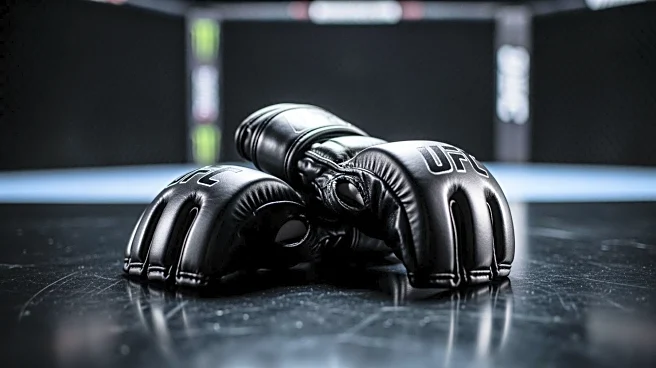What's Happening?
The UFC has released several fighters from its roster, including heavyweight Chris Barnett, following his unanimous decision loss to Hamdy Abdelwahab at UFC 321 in October. Barnett, known for his fan-favorite
status, had six appearances in the octagon, achieving a record of 2-4. His release comes after consecutive losses in Abu Dhabi to Abdelwahab and Kennedy Nzechukwu. Abdelwahab has also parted ways with the UFC after completing his contract at the pay-per-view event. Additionally, UFC lightweight and TUF 32 champion Kurt Holobaugh has been released. Holobaugh returned to the UFC after winning The Ultimate Fighter in 2023 but went 1-3 in his subsequent bouts, including a decision win over Kaynan Kruschewsky in July 2024.
Why It's Important?
The release of Chris Barnett and other fighters signifies the UFC's ongoing strategy to refresh its roster and maintain competitive standards. Barnett's departure highlights the challenges faced by fighters in maintaining their positions within the promotion, especially after consecutive losses. This move could impact the fighters' careers, as they may seek opportunities in other promotions or consider retirement. For the UFC, releasing fighters who have not met performance expectations allows the organization to focus on emerging talent and maintain its reputation for high-level competition. The decision also reflects the UFC's business model, which prioritizes marketability and performance.
What's Next?
Following their release, Chris Barnett and other affected fighters may explore opportunities with other MMA promotions or consider alternative career paths within combat sports. The UFC is likely to continue evaluating its roster, potentially leading to further releases or new signings. Fans and analysts will be watching closely to see how these changes affect the dynamics of upcoming events and the overall competitive landscape. The UFC's decisions may also prompt discussions about fighter contracts and the criteria for maintaining a position within the organization.
Beyond the Headlines
The release of fighters like Chris Barnett raises questions about the UFC's approach to talent management and the pressures faced by athletes in maintaining their status. It underscores the competitive nature of the sport, where performance and marketability are crucial for career longevity. This situation may lead to broader discussions about fighter welfare, contract negotiations, and the support systems available to athletes transitioning out of the UFC.












